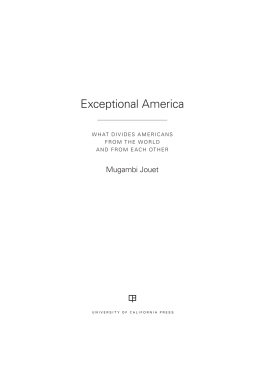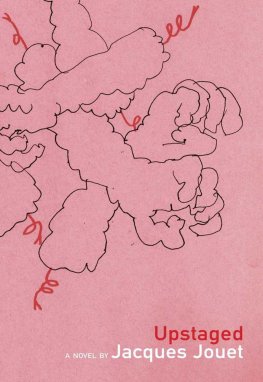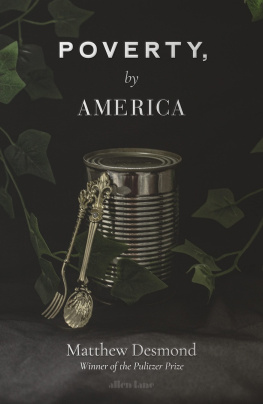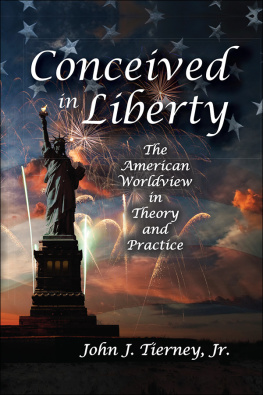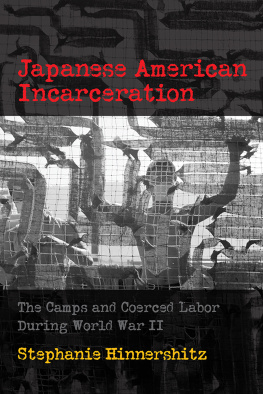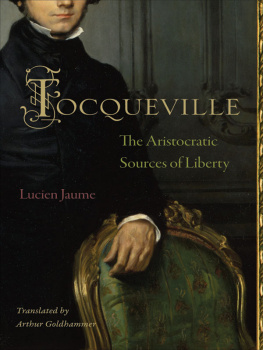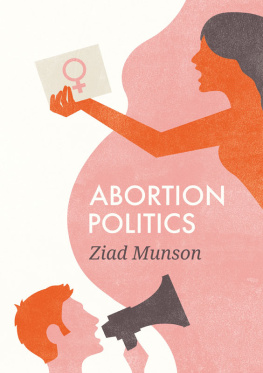ADDITIONAL PRAISE FOR EXCEPTIONAL AMERICA
Mugambi Jouet traveled from Paris, France, to Houston, Texas, as a college freshman and has been trying to make sense of the American experience ever since. The result is a richly textured account of the forces that make the United States unlike anywhere else in the world.
JUNE CARBONE , Robina Chair in Law, Science, and Technology, University of Minnesota Law School, and coauthor of Red Families v. Blue Families
Using a comparative perspective, and seeking to place American values in a larger context, Mugambi Jouet provides perspectives on the pervasive culture war that divides Americans.
NAOMI CAHN , Harold H. Greene Professor of Law, George Washington University Law School, and coauthor of Red Families v. Blue Families
Exceptional America is a seminal work written by a French author from a comparative framework. It is an eye-opening presentation of Americas contradictions, highly relevant in contemporary politics and a must-read for policy makers.
PASHAURA SINGH , Chair, Department of Religious Studies, University of California, Riverside
Exceptional America
Exceptional America
WHAT DIVIDES AMERICANS FROM THE WORLD AND FROM EACH OTHER
Mugambi Jouet

UNIVERSITY OF CALIFORNIA PRESS
University of California Press, one of the most distinguished university presses in the United States, enriches lives around the world by advancing scholarship in the humanities, social sciences, and natural sciences. Its activities are supported by the UC Press Foundation and by philanthropic contributions from individuals and institutions. For more information, visit www.ucpress.edu.
University of California Press
Oakland, California
2017 by Mugambi Jouet
Library of Congress Cataloging-in-Publication Data
Names: Jouet, Mugambi, 1981 author.
Title: Exceptional America : what separates Americans from the world and from each other / Mugambi Jouet.
Description: Oakland, California : University of California Press, [2017] | Includes bibliographical references and index.
Identifiers: LCCN 2016046909 | ISBN 9780520293298 (cloth : alk. paper) | ISBN 9780520966468 (eBook)
Subjects: LCSH: ExceptionalismUnited States. | National characteristics, American. | United StatesSocial policy. | United StatesEconomic policy. | United StatesPolitics and government21st century.
Classification: LCC E 169.12 .J 68 2017 | DDC 973dc23
LC record available at https://lccn.loc.gov/2016046909
Manufactured in the United States of America
25 24 23 22 21 20 19 18 17
10 9 8 7 6 5 4 3 2 1
It is impossible to understand a country without seeing how it varies from others. Those who know only one country know no country.
Seymour Martin Lipset
CONTENTS
LIST OF ILLUSTRATIONS
FIGURES
TABLES
PREFACE
On November 9, 2016, a puzzled world woke up to a new face of America. How could Donald Trump follow Barack Obama into the White House? Experts were stunned.
I began writing this book several years before the election, and it went to press shortly afterward. I also did not expect Trump to defeat Hillary Clinton, insofar as polls predicted her victory. I was nonetheless skeptical of the conventional wisdom that Trump hardly reflected the views of the Republican Party or most ordinary American conservatives. My research instead suggested that the difference between Trump and the G.O.P. establishment was often one of style, rhetoric, and temperament. While he built his platform on conspiracy theories about Obamas forged U.S. birth certificate and other spectacularly fact-free claims, scores of Americans were already convinced that climate change and the theory of evolution are myths. Some of Trumps campaign promises, such as barring Muslims from entering America, surely went beyond what contemporary leaders had called for. But it was not as if he had suddenly brought bigotry back to America after the civil rights movement of the 1960s ended it once and for all. Yes, Trumps incendiary declarations demonstrated reservations about democracy and the rule of law, yet many citizens and prominent politicians had come to embrace torture and indefinite detention without trial at Guantnamo.
My thesis was that conservative America has become an outlier in the Western world because of its growing radicalization over the past three decades. Four peculiar mindsets especially stood out: profound anti-intellectualism, fervent Christian fundamentalism, a visceral suspicion of government, and racial resentment. This nexus has fostered an exceptionally hardline and anti-rational ideology, which culminated in Trumps election, although it has much older roots in the birth of modern democracy in the United States. It is therefore my hope that this book will humanize Trump voters by tracing their ideology to the fabric of America, including its history, culture, politics, law, economics, religion, and race relations.
Longstanding features of American exceptionalism have shaped the nations intensifying polarization, from an egalitarian spirit to a tradition of religious liberty and a remarkable demographic diversity. These traits can manifest themselves in inspiring, contradictory, and destructive ways. They ultimately led to the presidency of a man whose movement has cast a shadow over the principles of democracy and human rights that America helped spread throughout the world.
Introduction
I exit the subway and walk past the Flatiron Building toward the Manhattan state appellate court, crossing elegant Madison Square Park on the way. Escaping the citys bustling corners on a weekday afternoon, quiet parkgoers sit pensively by the water fountain or chat lightheartedly on the lawn. But now is not the time for dawdling, as I am about to argue a criminal case before a panel of five judges.
It is 2009 and I am a public defender, namely a human rights lawyer defending poor people who cannot afford an attorney. My colleagues and I represent the most underprivileged members of society in a broad range of criminal cases, from homicides to petty drug offensesan uphill battle at a time when America has the worlds top incarceration rate. Over 2.2 million people live behind bars in the land of the free. Capital punishment is primarily a Southern phenomenon but harsh justice is not limited to red states. Judges in New York routinely inflict draconian prison terms regardless of mitigating circumstances.
Upon arriving at the courthouse I am greeted by my clients mother, who asks me whether the judges are likely to overturn her sons conviction for selling a small quantity of drugs. I explain that there is no basis to challenge his guilty plea, though the judges have the discretion to reduce his six-year sentence. Despite her resilience, she has little hope after witnessing the toll of the War on Drugs on her neighborhood. The young Afro-Latino man I defend is among the multitude of destitute New Yorkers incarcerated in I previously visited my client in an austere upstate prison, but the judges will never have to look him in the eye. Unlike for trial proceedings, prisoners have no right to attend the appellate arguments that seal their fates.
I sit down and gaze around while several other cases are heard. A remarkable feat of architecture, the Manhattan state appellate courtroom is decorated with Renaissance-inspired murals. The salient figure is Lady Justice waiting to render her noble judgment. In God we trust is engraved above the judges bench. Yet a peculiar brand of justice is meted out here every day.

